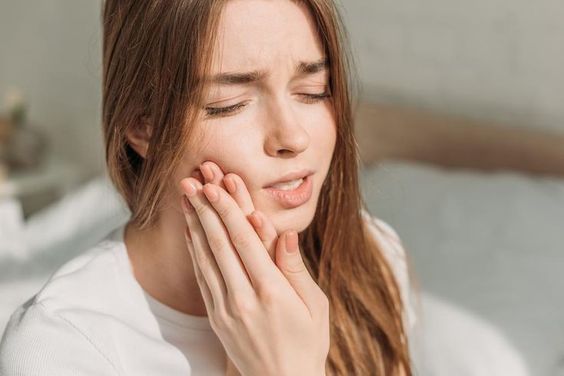
The temporomandibular joint (TMJ) is
a hinge-type joint that attaches your jaw to the skull and is just in front of
your ears. TMJ disorders (TMDs) are a collection of ailments that lead to pain
and malfunctioning of the jaw joint and the muscles that guide the movement of
the jaw. These disorders are either temporary or chronic, and they are one of
the most common causes of chronic facial pain. The intricacies of the jaw, the
muscles surrounding it, and other elements that affect it make a TMJ disorder a
complicated issue to diagnose and treat. Yet, it is susceptible to
extraordinary measures of success in being treated, and can positively affect
the person's life.
Symptoms of TMJ Pain and TMJ Disorders:
● Chronic Jaw Pain: The most common
symptom is chronic pain / Tenderness in the jaw, jaw joint, and the facial
muscles. Their pain may be a dull ache or it may be sharp and painful, which
sometimes gets worse during chewing or speech.
Symptoms of TMJ Pain and TMJ Disorders:
● Clicking, Popping or Grating Noises:
These noises occur when a person opens his mouth or closes it through clicks or
pops. Although it is not always an issue, when accompanied by pain or
restriction of any jaw movements, they suggest strongly suggests the presence
of a TMJ disorder.
● Limited range of Jaw movement:
trouble opening the mouth wide, or feeling that the jaw is locking or getting
jammed in open or closed state, is an evident indication of the TMJ problem.
● Headaches and Earaches: Due to the proximity of the TMJ to
the ear, such headaches and earaches are other forms of referred pain caused by
TMJ conditions, even when no ear infection is present.
Effects of TMJ Pain and TMJ Disorders:
● Pain Relief: The first and most
apparent benefit of effective TMJ therapy is that pain (in the jaw, headache
and ear ache) will disappear or be minimised, and everyday life can be
reclaimed.
● Reconstructed Jaw Function: This can
be achieved through treatment where the jaw movement is restored to normal, and
an individual can open their mouth wide without pain or locking. This enhances
the capacity to chew, talk and yawn easily.
●
Tooth Damage Prevention: If the TMJ disorder is associated
with teeth grinding (bruxism), treatment can minimise the clenching, preventing
further wear and destruction of the teeth and dental restorations.
